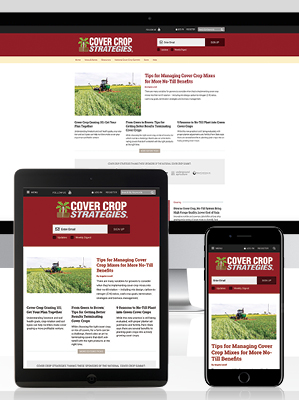Calves, robins, geese, vultures… all signs confirming spring’s arrival in Iowa. The green up can feel like it arrived in hours, and it really is changing by the hour. Rye is among the first species to break winter dormancy and grows when temperatures reach 38 degrees F. While how fast the growth comes depends on multiple factors like growing degree days and moisture, in general, triticale and wheat tend to lag behind rye about two weeks.
The right time to turnout on annual forages depends on the operation goals. To optimize yield, avoid grazing before the forage is ~8” and remove cattle in muddy conditions or when the forage is grazed down to 4” if you plan to graze regrowth. If you intend to terminate early or are simply desperate to get cattle out of muddy conditions, cattle can be turned out earlier (some already have) but recognize that cows will still need to be fed until growth is adequate to meet intake requirements.
The early growth is made up of a high percentage of water, so each bite doesn’t pack the nutrient load of a harvested feed. On the bright side, these annual forages are very digestible, and tend to be high in protein, so once cattle can physically fill their mouth when taking a bite, they are likely meeting nutritional requirements. Until that point, a supplemental feed source is needed. Move any supplemental feeding areas (bale rings, bunks, mineral feeders) throughout the grazing period to discourage loafing areas and consider strip grazing or rotational grazing to improve harvest efficiency.
Although uncommon, grass tetany, nitrates, sulfur, and bloat can all be health issues that arise while grazing annual forages. For each of these, being proactive in prepping the herd before turnout is very effective to keep the herd healthy. Best practices include getting cattle on a high Mg mineral at least 2 weeks before turnout and turning cattle out later in the day on a full stomach. Check out this resource to learn more if you have reason to believe acres you plan to graze pose a risk.



